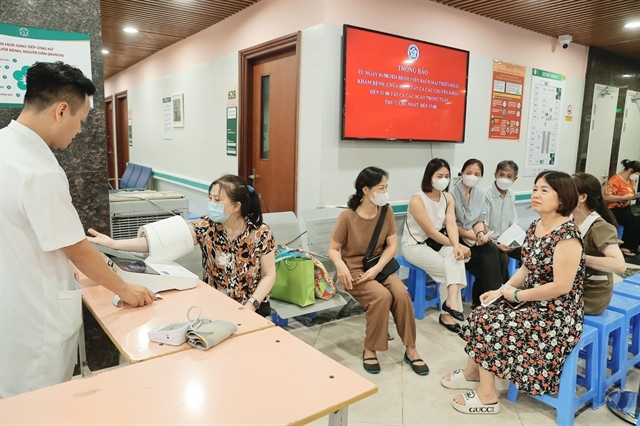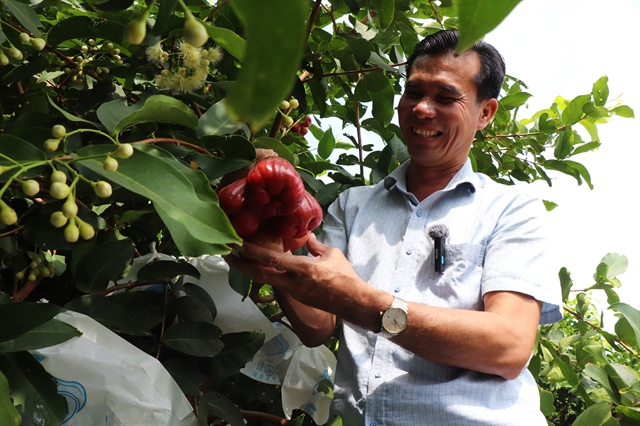 Society
Society

 |
| Patients wait for blood pressure checks at Bạch Mai Hospital in Hà Nội. — VNA/VNS Photo |
HÀ NỘI — The Ministry of Health has announced a new list of 62 rare and severe diseases eligible for full insurance coverage without requiring documentation for referal to a higher level.
This change has made patients feel secure when receiving treatment at specialised, high-tech medical facilities.
Since September 2024, Hoàng Văn Tiến, a patient from Hà Nam Province, has been receiving treatment for lymphoma at Hospital K. Every 20 days, he must have chemotherapy.
As of January 1, 2025, he no longer needs to bring a referral letter to transfer from a provincial hospital to a central hospital.
“I found out that my illness is on the list of diseases that do not require a referral. It used to take me lots of time asking for a referral letter. Now that it has been removed, I feel less pressure,” he told the Voice of Vietnam.
Thái Thị Vỹ, a patient from Hà Tĩnh Province, said she used to spend the entire day going to the district’s hospital and then the provincial hospital to request a referral letter.
“Since my hometown is far away, my entire family rushes to file for a referral whenever I need to travel to Hà Nội for a medical check-up," she said. I can now treat my disease with confidence because I don't need this paper anymore."
More than 20,000 cancer patients with health insurance were treated at Hospital K during the first two days of 2025 without requiring referral paperwork, according to the hospital's representative.
The Ministry of Health's Circular 01 identifies the conditions for which patients no longer need to go through the referral letter process and can proceed directly to specialised or basic medical examination and treatment facilities.
Diabetes with numerous complications, metabolic diseases, stage 3 and 4 heart failure, patients with organ transplants, malignant tumours in the pancreas, thymus, heart, mediastinum, meninges, lymphatic system and hematopoietic system, as well as dangerous infectious and parasitic diseases, are among the 62 diseases on the list.
Trần Thị Trang, director of the Department of Health Insurance, Ministry of Health, said the list was chosen and assessed based on a number of factors, including serious and rare diseases as well as illnesses that require advanced technology and that cannot be treated with basic, first-level care. Those cases must be sent straight to a higher level.
Trang said: "We focus on a number of diseases that, through screening, only the specialised level has the capacity to diagnose and treat. Patients no longer have to go through many levels to detect the diseases, which previously reduced the effectiveness of treatment.
We also review all disease codes and treatment costs to ensure the ability to balance the health insurance fund."
Circular 01 allows patients to choose to receive medical examination and treatment at a specialised level, such as a provincial hospital or a central hospital.
According to Trang, if a specialised medical examination and treatment centre in their province is capable of diagnosing and treating the ailment, individuals should visit and receive treatment close to their home in order to maintain the system's balance. Patients can receive convenient care while remaining near their families, which lowers travel expenses.
Circular 01 is regarded as a particularly meaningful regulation for improving the quality of medical examination and treatment, ensuring that patients receive care for diseases that require specialised expertise. VNS




